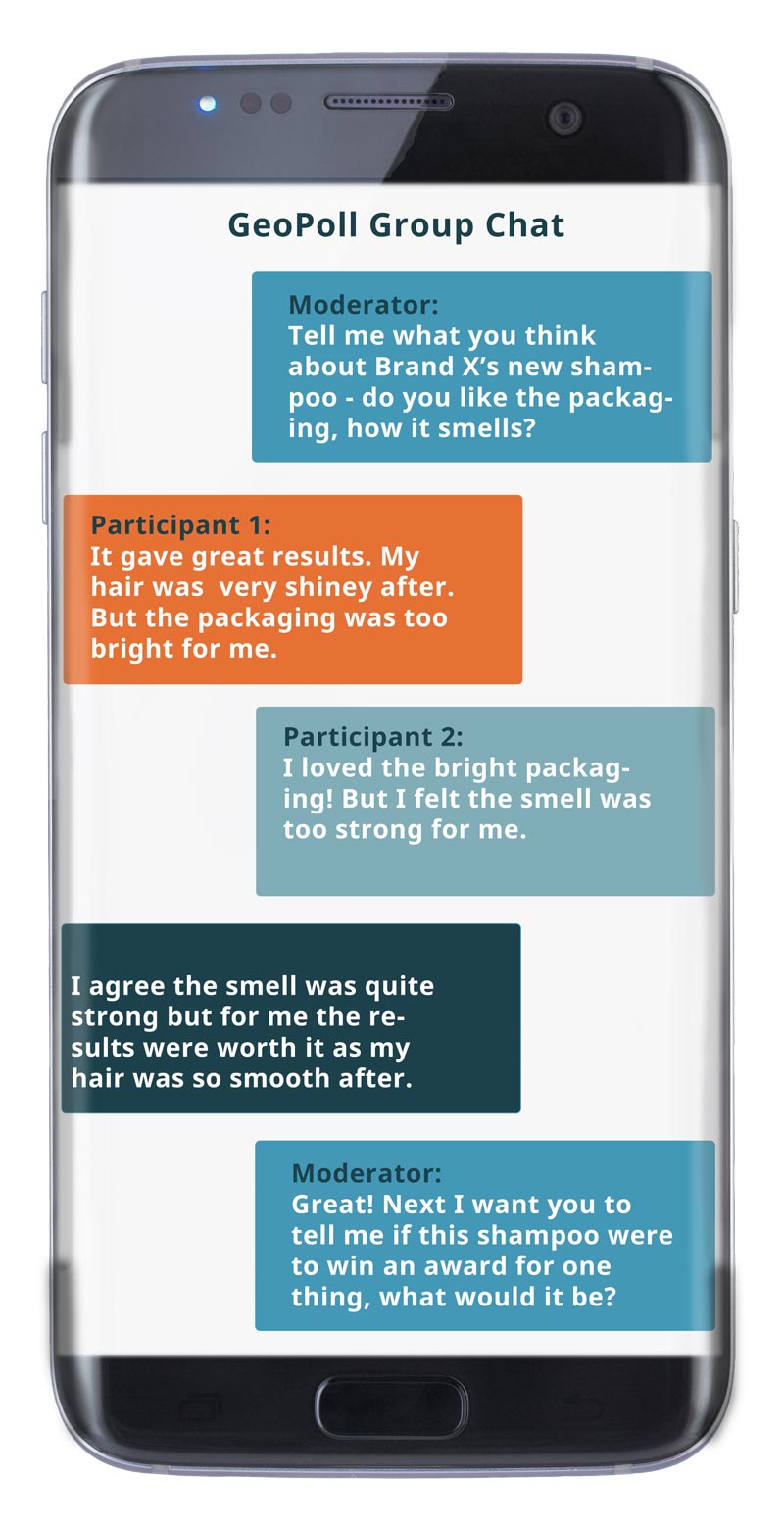- Contents
A focus group is a type of qualitative market research that is conducted with a small group of people with the aim to learn about the participants’ attitudes and opinions on a particular topic.
There are two types of focus groups: in-person and remote. In-person focus groups are held in a predetermined location while remote ones are conducted online via video, phone calls, or messaging platforms such as WhatsApp.
A major benefit of conducting an in-person focus group is that you can observe the participant’s facial expressions and body language, which provides valuable information. Remote focus groups provide more privacy for participants because they don’t have to disclose personal information such as their address or phone number.
How focus groups typically work
With the choice that modern technology presents, there are several ways to run focus group studies. The common denominator is that a group of people is selected to represent the target market. This group is called a focus group. The research is conducted through a moderated discussion and feedback session with the focus group.
The focus group normally consists of at least 5 people, but it can be more depending on the scale of the study. The participants are chosen because they are representative of the target market, not necessarily because they have experience in the product or service area being researched.
Major considerations
The first thing to consider when setting up a focus group is the sample size. As always, the larger the sample size, the more accurate the results will typically be.
The second consideration should be the composition of the focus group. Usually, this will depend on your target audience and the needed feedback. For example, focus groups to discuss a diaper brand would consist of mostly parents, compared to one where the subject is toothpaste which can have a more general composition.
The third consideration should be where you want to conduct the focus group. You should consider how many participants you need and how geographically dispersed they are before deciding where to conduct your research study. If the target area and the targeted focus group members are within a city, you could choose a central location to meet the participants in person. When conducting a national study, it would make more sense to run the focus group online, such as by using Market Research Online Communities (MROCs).
Generally, the main factors to consider in setting up a focus group are:
- The purpose of the focus group
- The size of the focus group
- The type of participants for the focus groups
- Location of the focus groups
GeoPoll’s Remote Focus Groups
 GeoPoll has experience collecting qualitative data through multiple mobile-based methods, including MROCs. GeoPoll’s mobile-based MROCs provide the best option for collecting in-depth insights from audiences across Africa and other emerging regions. Using GeoPoll’s unique mobile-based focus groups, you can gather high-quality qualitative data in a fraction of the time and cost of traditional research methods. To learn more or request a quote, contact us today.
GeoPoll has experience collecting qualitative data through multiple mobile-based methods, including MROCs. GeoPoll’s mobile-based MROCs provide the best option for collecting in-depth insights from audiences across Africa and other emerging regions. Using GeoPoll’s unique mobile-based focus groups, you can gather high-quality qualitative data in a fraction of the time and cost of traditional research methods. To learn more or request a quote, contact us today.
